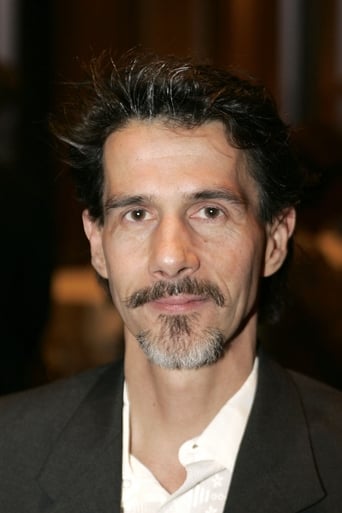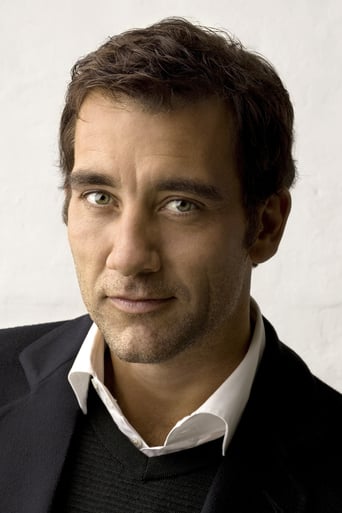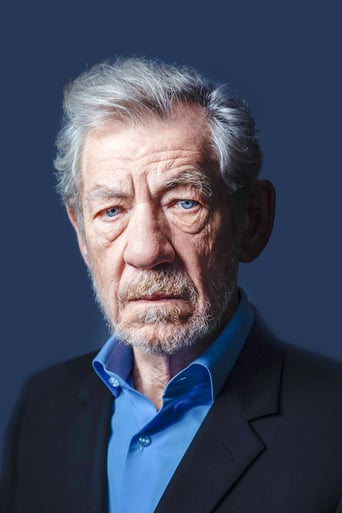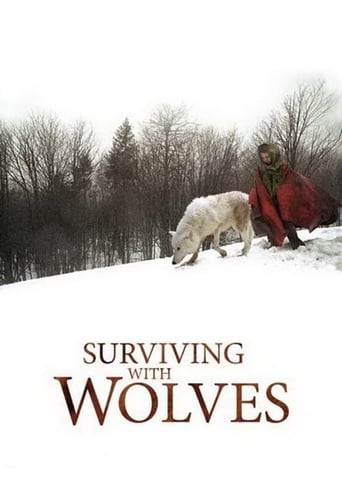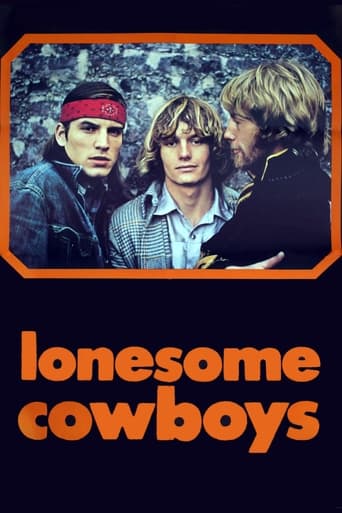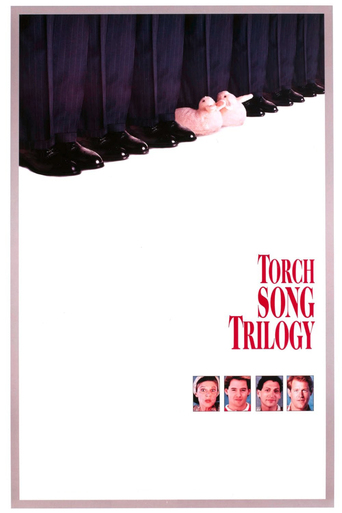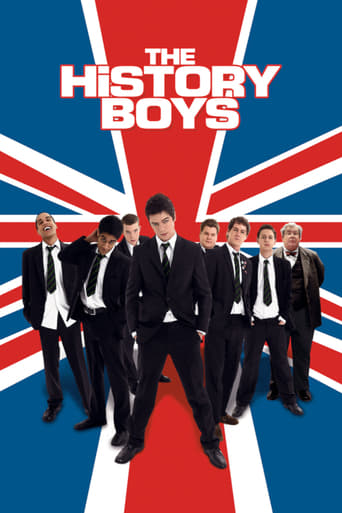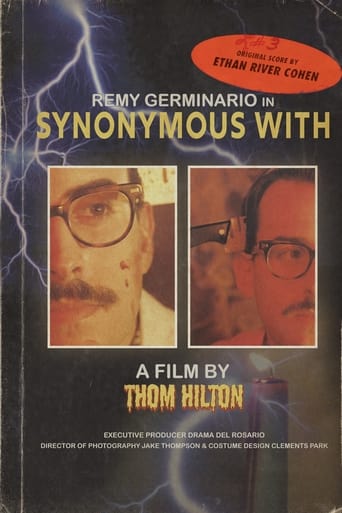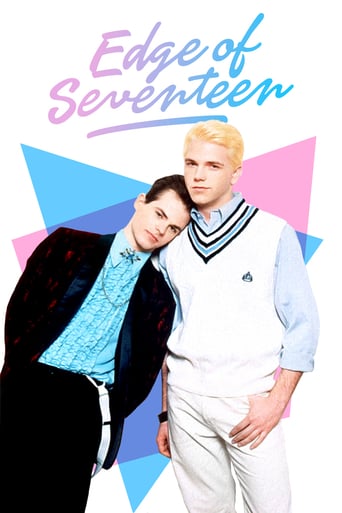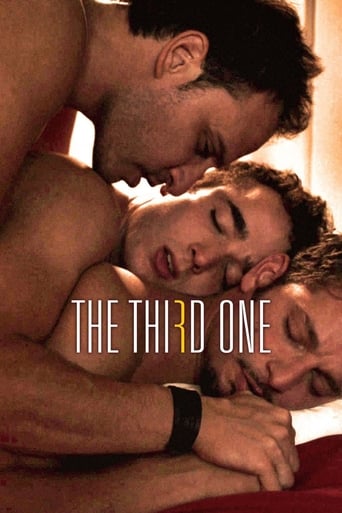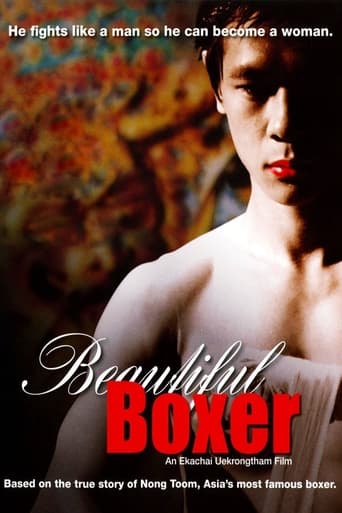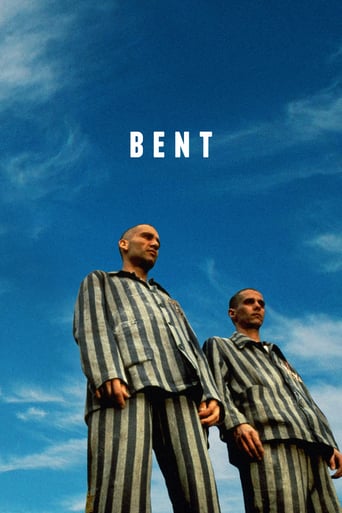
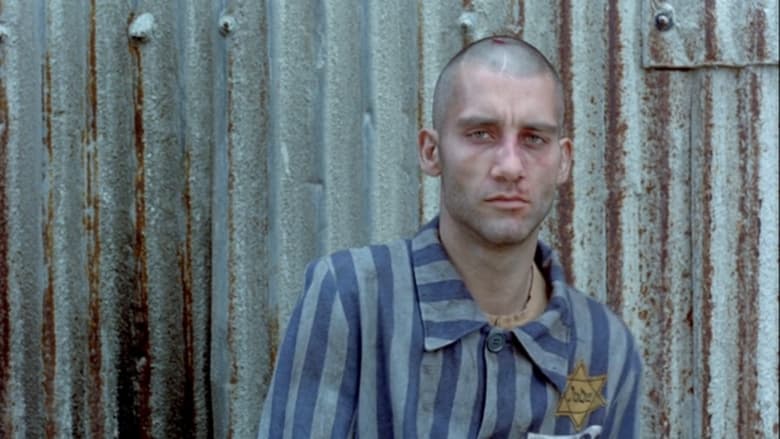
Bent (1997)
Max is a handsome young man who, after a fateful tryst with a German soldier, is forced to run for his life. Eventually Max is placed in a concentration camp where he pretends to be Jewish because in the eyes of the Nazis, gays are the lowest form of human being. But it takes a relationship with an openly gay prisoner to teach Max that without the love of another, life is not worth living.
Watch Trailer
Cast
Similar titles
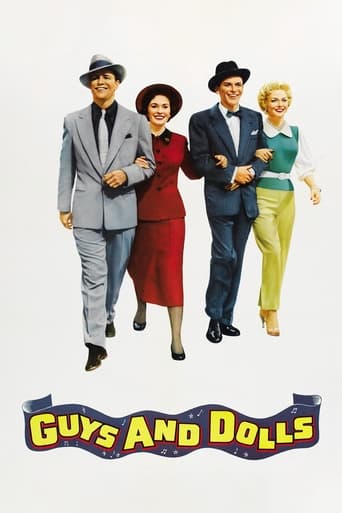
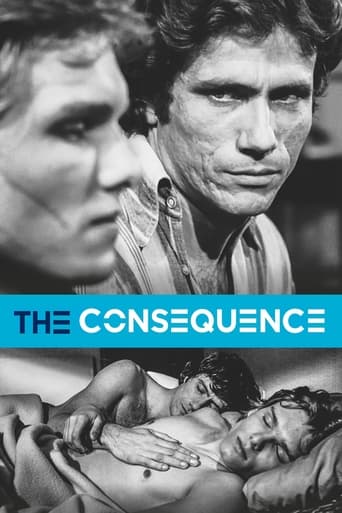
Reviews
You won't be disappointed!
Best movie ever!
What begins as a feel-good-human-interest story turns into a mystery, then a tragedy, and ultimately an outrage.
The movie's neither hopeful in contrived ways, nor hopeless in different contrived ways. Somehow it manages to be wonderful
a story of survive. and love. and courage. a sensitive subject because the Nazi camps are too clear, in too many films, defined. a film who seems be perfect. illustration of a not real known side of tragedy, dramatic for the force of music, convincing for the art of cast, cold and strange and convincing and bitter. the music and the cinematography in inspired mixture for describe an episode out of words. Clive Owen . and Lothaire Bluteau. and the impression , after its end, to be more than a film. because the scent of cinematography, the forms of resistance, the pride as only manner to remain yourself remains, for a time, in memory, clear. a film about Nazi camps. and about a window to freedom.
I watched this in two stages: first half, late at night; second half the following evening. I love historical stories set in Europe during WWII. I was intrigued by the first part, even though it was quite disturbing, however, the second part between the two principles, the real heart of the story, just left me completely cold. I cared nothing for either of them. I don't even know what to say about Max, but if I did, there wouldn't be much good in it. Horst was just downright annoying and nag. I found their verbal sexual interaction boring and pretentious; I was sorry it was repeated later in the film. The action was so staid in this ridiculous situation they were in, that I was relieved when one of them was killed. Maybe you're supposed to feel that way. I don't doubt that such situations really happened, senseless as the Nazis were, but I just don't think it made for interesting story telling. Honestly, the only character I felt anything for was Rudy; I was sorry he died so early on. Just my opinion.
Adapting stage plays to the screen is a process fraught with all sorts of dangers; decisions constantly must be made as to how faithful to make the adaptation. Sometimes a very courageous director will simply give the film audience basically the same thing the stage audience saw (as with THE BOYS IN THE BAND or THE BAD SEED); others will "open up" the play to make it more cinematic; the results there tend to vary from brilliant (CABARET, for example) to awful (A CHORUS LINE).Director Sean Mathias's film version of Martin Sherman's landmark play BENT is a harrowing look at the fate of the Gay community under Nazism told through the eyes of Max (Clive Owen), a promiscuous habitué of the boy bars who is arrested along with his boyfriend Rudy (Brian Webber) the morning after bringing home a member of the SA (Nikolaj Coaster-Waldau). On the way to Dachau Max is forced to beat Rudy to death by the brutal SS guards to prove his claim that he is not homosexual; Max has decided that a yellow star (Jewish) would be less dangerous a marker than a pink triangle.In the early scenes of the film we are given a look at the Berlin club scene; Mick Jagger has a stunning cameo as Greta, a performer at the club who knows what's coming and makes an abortive attempt to warn Max, but Max won't listen; neither will he listen to his uncle Freddie (Ian McKellen), an older and more discreet man who satisfies his desires in secret with rent boys. Freddie manages to get faked papers for Max but he will not leave without Rudy, and tragically, this decision spells doom ultimately for both of them.The second half of the story focuses on Max at Dachau; he is paired with another Gay prisoner, Horst (Lothaire Bluteau), and together they are made to move heavy stones from one pile to another and back again, and again, and again. Under the incredibly dehumanizing circumstances, these two men somehow manage to fall in love; and the result is one of the most remarkable and painful love stories ever put on film.Unfortunately, you have to wait nearly an hour to get to the story of Max and Horst, which is the segment of the film that has all the power and impact of Sherman's play. The first half, despite cutting out huge chunks of dialogue, seems interminable and lacks energy; one feels that had they kept the play's first half intact it would have taken about half an hour less to get to Dachau, which is where the beating heart of the story is located.The acting is wonderful, though. Clive Owen, brought in to fill Richard Gere's shoes (Gere had played the role on Broadway but was doing another film at the time), displays a haunting vulnerability as the terrified Max, and Lothaire Bluteau's Horst is in many ways the central figure of the piece, as he stands for what happens when love and hate collide. Bluteau bares his soul in probably the best performance in the picture, though he is in very good company.I give this one a 6 because what it does well, it does exceptionally well. It's a pity that the first half is so dull; the original was anything but.
No person who is knowledgeable about the Holocaust can ever claim that without seeing Bent. The play which opened in 1979 in London is about those all too forgotten victims of the Holocaust, the gay people of Europe. On Broadway the lead role that Clive Owen plays was essayed by Richard Gere for the run of 241 performances in the 1979-1980 season. Doing his original role from the London production as Uncle Freddie is Sir Ian McKellan.For those who think that homosexuality doesn't have an inherited element in it, Bent certainly gives lie to that. During the Weimar Republic years Germany had a thriving gay if somewhat discreet scene. After the Night of the Long Knives with the SA purge in 1934, gays were systematically rounded up for a final solution and Hitler certainly did a thorough job of it. Today the German Federal Republic has once again a thriving gay scene. Those recessive genes are popping out in full force.Bent does begin right at the Night of the Long Knives where Ernst Roehm was killed and anyone whoever knew of him and his not so discreet gay lifestyle was done in. The long knives of Himmler's SS come calling that night on Clive Owen and his boyfriend Brian Webber because they've picked up a pretty young man who used to trick with Roehm. He dies quite gruesomely, but they escape.Owen seeks aid from an old gay man who's called Uncle Freddie played by Ian McKellan who gives him some help, but whom Owen doesn't take some good advice from. McKellan has been very much deep in the closet, it's what's made him survive a society where homophobia is not just approved, but is now the law of the land.After this the scene cuts to a train to Dachau and Dachau itself where Owen and Webber are taken. Webber doesn't survive the trip, that scene is something I don't want to reveal. Owen decides that he'll take the Jewish star of David rather than a pink triangle, in the Dachau pecking order gay is worse than Jewish. Just as Schindler's List showed the dehumanization of Jews, Bent shows the dehumanization of gay people. Only there was no Oskar Schindler to save some of them. In fact sexuality as a form of repression has not ever been better displayed on screen than in Bent.But Owen learns about gay pride from another prisoner, Lothaire Bluteau who wears the pink triangle in defiance. They find a connection and consummate that connection in the only way they can do it under the circumstances. Again a scene I can't reveal.This film should not be missed by any Gay/Lesbian/Bi-Sexual/Trangendered person on this planet. It shows better than anything else what we potentially face in the way of repression when we are dehumanized by law and societal mores. We cannot let that happen and we have to make sure it's stopped in the places it does happen in the world.And this review is dedicated to all the brothers and sisters who died back then. Here's hope for a better world for our next generation.
